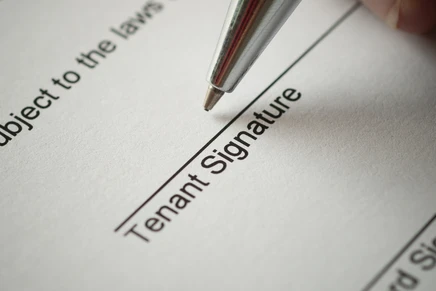What do you need to rent a house?
The most important things to consider when renting a property are where and how much. Once you’ve settled on your preferred location and have worked out your budget, you’ll need to make a few other considerations. For example, have you weighed up the benefits of choosing to use a letting agent rather than a private landlord or worked out the necessary documents needed for renting a house or flat?
What do you need to rent a house?
When it comes to renting a home, you’ll need to be prepared and consider formalities like the tenancy agreement and what you’ll be expected to pay. Fortunately, we’ve broken down the important stuff for you here…
The necessary documents for renting a house:
Proof of identity
Your letting agent and landlord will most certainly want to make sure that you are who you say you are. Normally, a driving licence or passport will do, but if you have neither, then a signed bank card and a utility bill will be OK in some circumstances.
A bank account
It seems like common sense, but you’ll need a bank account if you want to rent a new home. Most high-street banks can provide basic ones that allow you to set up standing orders and direct debits.
You might want to consider opening a joint account with your housemate so that you’re sharing financial responsibility of your home. Trust us, you’ll be grateful when you need to talk to your internet provider and they will only speak to the bill payer. Just be aware that a joint account will affect your credit rating for better or worse, depending on the state of the other person’s financial health.
Proof of earnings
If you’ve decided to go through a letting agent, they may want to provide proof of income for your new landlord. This is most likely going to be a recent payslip, but they may ask for a statement from your boss, which might also include a reference…
Referees
There are two types of reference that you may be asked to provide for your landlord or letting agent – as such, you’ll need to provide contact details, addresses and dates from the last three years for the following:
1. Employer reference
Your landlord just wants to make sure you’re going to be able to pay the rent and may get in touch with your employer to make sure you have a job. Bear in mind that some employers won’t want to share anything too sensitive and will just confirm that you work for them. Otherwise, the standard questions are:
- What is your salary?
- How long have you worked at the company?
- Are you in a part-time or full-time position?
- And are you a permanent or temporary staff member?
2. Previous landlord
The letting agent or new landlord will likely get in touch with your previous landlords to find out:
- If you paid your rent on time.
- If you looked after the property.
- Why you left?
- If they would let a property to you again in the future.
Tenancy agreement
This is important. The tenancy agreement is a contract between the landlord and the tenant that clarifies and sets out the expectations of both parties during the time a house or flat is occupied. Tenancy agreements protect the rights of both the landlord and the tenant so that rules and duties on both parts are upheld, meaning that the occupation of the property is as stress-free as possible.
You can find out more about tenancy guides here.
Right to rent – how does renting a house work?
Anyone letting a property is now responsible for making sure that the tenant has the right to rent in the UK, which means that they will want to see your passport or visa and those of anyone else in the property over the age of 18. If you’re British or Irish and don’t have a passport, then you can offer your birth certificate and some other ID you might have.
Will I need a credit check to rent a property?
Most landlords, especially those with letting agents will run a credit check on you to get an idea of your financial responsibility.
They’ll check to see if you've had any problems paying bills in the past and will need your written permission to do this. If you have any doubts about your credit rating, we recommend being as upfront and honest as possible, especially if fees are involved.
You’ll probably find that most landlords can be very accommodating. Bear in mind that they may request that someone acts as your guarantor - effectively a fail-safe if you’re unable to pay your rent on time. Just remember that a guarantor’s role is legally binding and they will be responsible for covering any rent that you fail to pay.
What fees will I have to pay when renting a home?
On 1st June 2019, the Government changed the laws about the fees tenants pay when they rent a home. The Tenant Fees Act bans all charges in connection with the tenancy of housing in England unless they're ‘permitted payments’, like your rent, a 5-week deposit, or zero deposit alternative and any communication services.
You can read more about tenant fees here.
Get in touch with Wards
Ready to rent your new home? Get in touch today and see how Wards can help. Feel free to pop into your local branch for a chat or go to our contact page and see the other ways you can get in touch about renting.
**Correct as of December 2022


